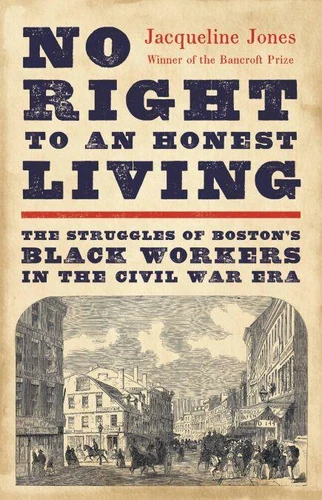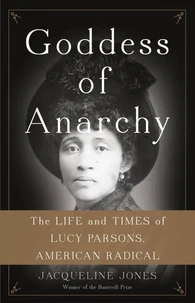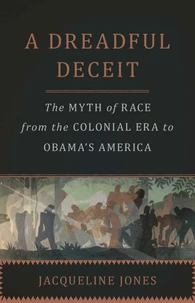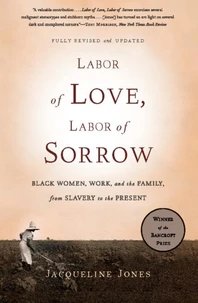No Right to an Honest Living. The Struggles of Boston's Black Workers in the Civil War Era
Par :Formats :
Disponible dans votre compte client Decitre ou Furet du Nord dès validation de votre commande. Le format ePub protégé est :
- Compatible avec une lecture sur My Vivlio (smartphone, tablette, ordinateur)
- Compatible avec une lecture sur liseuses Vivlio
- Pour les liseuses autres que Vivlio, vous devez utiliser le logiciel Adobe Digital Edition. Non compatible avec la lecture sur les liseuses Kindle, Remarkable et Sony
- Non compatible avec un achat hors France métropolitaine
 , qui est-ce ?
, qui est-ce ?Notre partenaire de plateforme de lecture numérique où vous retrouverez l'ensemble de vos ebooks gratuitement
Pour en savoir plus sur nos ebooks, consultez notre aide en ligne ici
- Nombre de pages544
- FormatePub
- ISBN978-1-5416-1980-7
- EAN9781541619807
- Date de parution09/01/2023
- Protection num.Adobe DRM
- Infos supplémentairesepub
- ÉditeurBasic Books
Résumé
WINNER OF THE PULITZER PRIZE IN HISTORY A "sensitive, immersive, and exhaustive" portrait of Black workers and white hypocrisy in nineteenth-century Boston, from "a gifted practitioner of labor history and urban history" (Tiya Miles, National Book Award-winning author of All That She Carried) Impassioned antislavery rhetoric made antebellum Boston famous as the nation's hub of radical abolitionism.
In fact, however, the city was far from a beacon of equality. In No Right to an Honest Living, historian Jacqueline Jones reveals how Boston was the United States writ small: a place where the soaring rhetoric of egalitarianism was easy, but justice in the workplace was elusive. Before, during, and after the Civil War, white abolitionists and Republicans refused to secure equal employment opportunity for Black Bostonians, condemning most of them to poverty.
Still, Jones finds, some Black entrepreneurs ingeniously created their own jobs and forged their own career paths. Highlighting the everyday struggles of ordinary Black workers, this book shows how injustice in the workplace prevented Boston-and the United States-from securing true equality for all.
In fact, however, the city was far from a beacon of equality. In No Right to an Honest Living, historian Jacqueline Jones reveals how Boston was the United States writ small: a place where the soaring rhetoric of egalitarianism was easy, but justice in the workplace was elusive. Before, during, and after the Civil War, white abolitionists and Republicans refused to secure equal employment opportunity for Black Bostonians, condemning most of them to poverty.
Still, Jones finds, some Black entrepreneurs ingeniously created their own jobs and forged their own career paths. Highlighting the everyday struggles of ordinary Black workers, this book shows how injustice in the workplace prevented Boston-and the United States-from securing true equality for all.
WINNER OF THE PULITZER PRIZE IN HISTORY A "sensitive, immersive, and exhaustive" portrait of Black workers and white hypocrisy in nineteenth-century Boston, from "a gifted practitioner of labor history and urban history" (Tiya Miles, National Book Award-winning author of All That She Carried) Impassioned antislavery rhetoric made antebellum Boston famous as the nation's hub of radical abolitionism.
In fact, however, the city was far from a beacon of equality. In No Right to an Honest Living, historian Jacqueline Jones reveals how Boston was the United States writ small: a place where the soaring rhetoric of egalitarianism was easy, but justice in the workplace was elusive. Before, during, and after the Civil War, white abolitionists and Republicans refused to secure equal employment opportunity for Black Bostonians, condemning most of them to poverty.
Still, Jones finds, some Black entrepreneurs ingeniously created their own jobs and forged their own career paths. Highlighting the everyday struggles of ordinary Black workers, this book shows how injustice in the workplace prevented Boston-and the United States-from securing true equality for all.
In fact, however, the city was far from a beacon of equality. In No Right to an Honest Living, historian Jacqueline Jones reveals how Boston was the United States writ small: a place where the soaring rhetoric of egalitarianism was easy, but justice in the workplace was elusive. Before, during, and after the Civil War, white abolitionists and Republicans refused to secure equal employment opportunity for Black Bostonians, condemning most of them to poverty.
Still, Jones finds, some Black entrepreneurs ingeniously created their own jobs and forged their own career paths. Highlighting the everyday struggles of ordinary Black workers, this book shows how injustice in the workplace prevented Boston-and the United States-from securing true equality for all.







